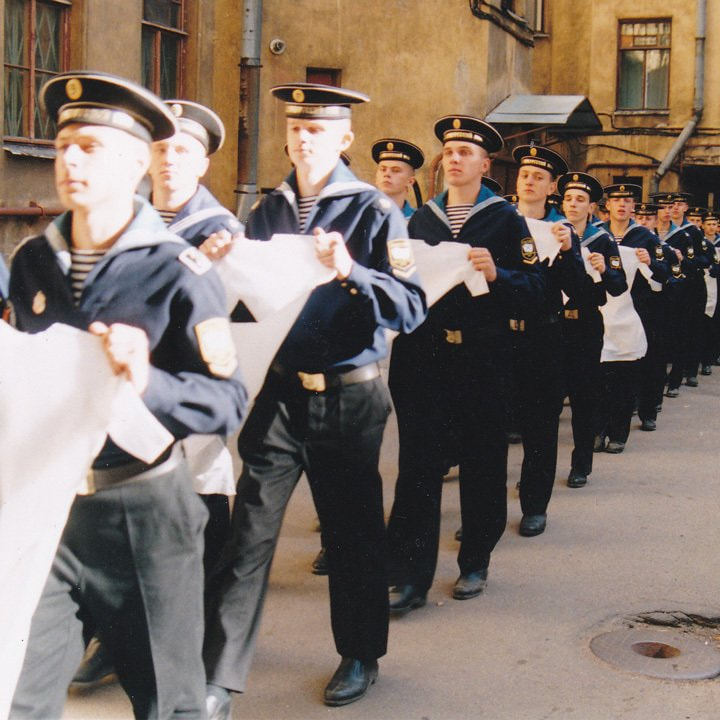The lecture will acquaint the audience with the first women’s art group in the post-Soviet space, Factory of Found Clothes which was founded by Natalia Pershina-Yakimanskaya (a.k.a. Gluklya) and Olga Egorova (a.k.a. Tsaplya) in the mid-1990s and aimed to turn clothing into an art medium.
The dresses, shirts, and coats created by the group’s participants ranged from sentimental and tender to surreal and frightening. They told stories of romantic love, confessed their sins, and exposed their imaginary proprietresses. Their surfaces displayed drawings of internal organs, drops of blood made from glass beads, and intimate confessions written in a childlike hand. In their manifesto of 2002, the artists promised “to protect the child in each of us” and argued that “the artist’s place is on the side of the weak,” paving the way for the collective and participatory practices of the “utopian unions” of the 2000s. Dressed in white, angelically asexual chemical protection suits, the lyrical heroines of Factory of Found Clothes had developed from schoolgirls into sisters of mercy, claiming for art the potential for helping people and taking the side of the oppressed. The performance Triumph of Fragility, in which students of a naval college marched through St. Petersburg in formation carrying miniature snow-white dresses in their hands, became the group’s artistic manifesto. Rejecting the imposed stereotypes of male power and feminine weakness and revealing the child inside the uniformed military cadets, the artists undermined the unshakable power- and authority-driven hierarchies in Russian society.

